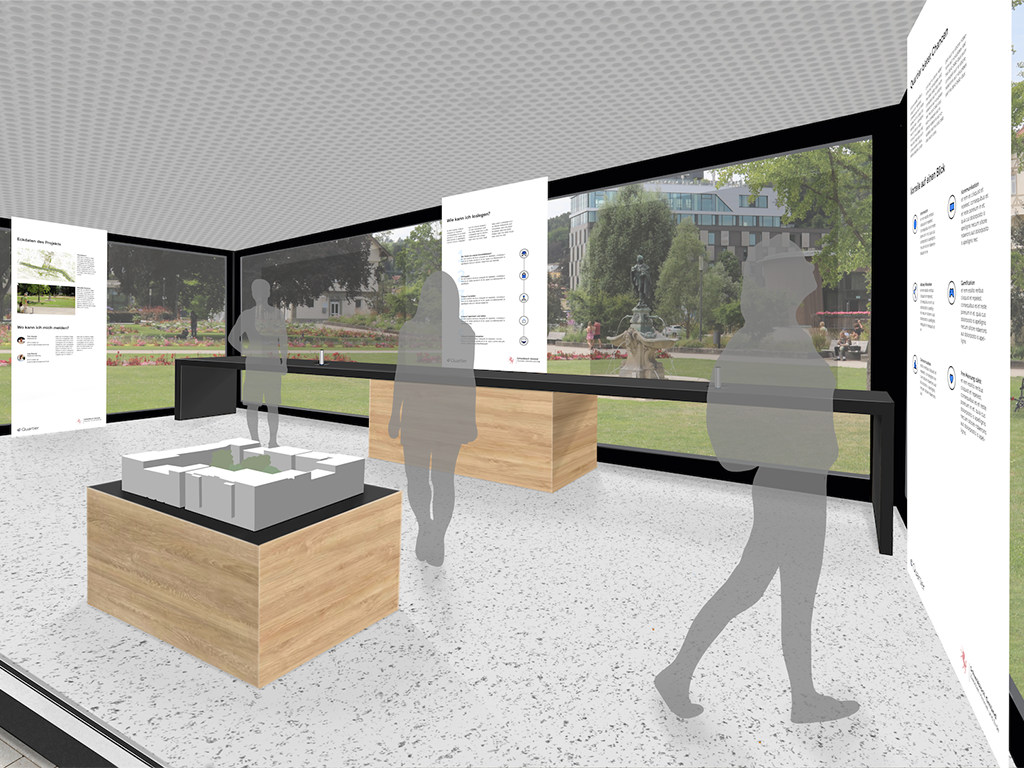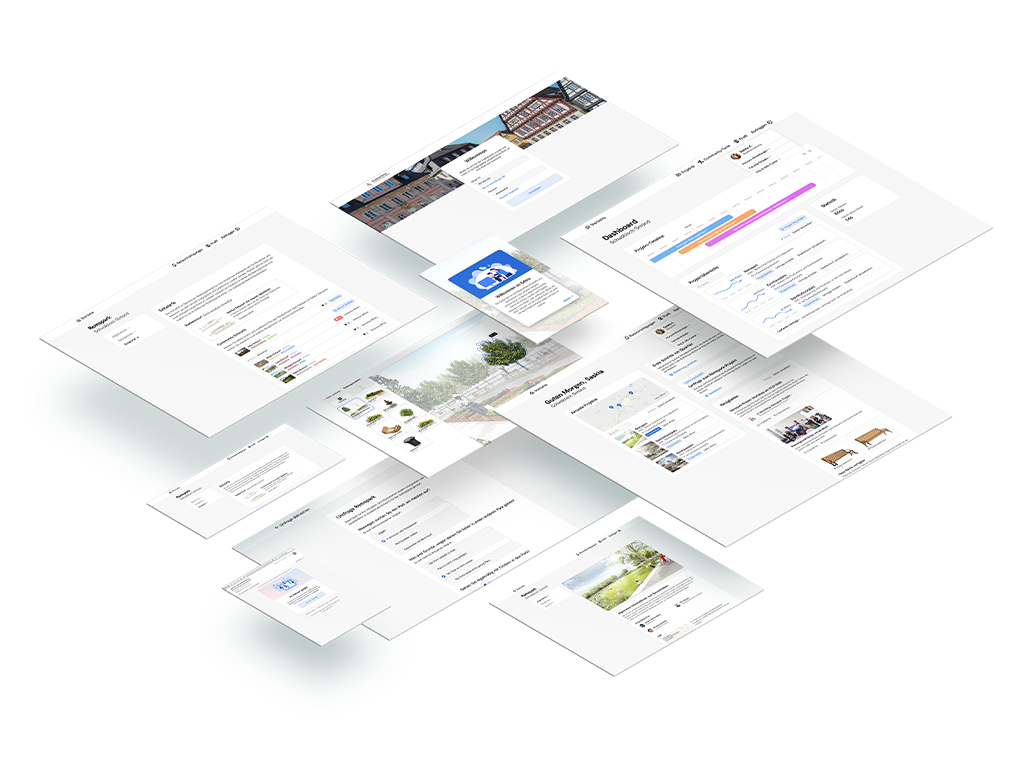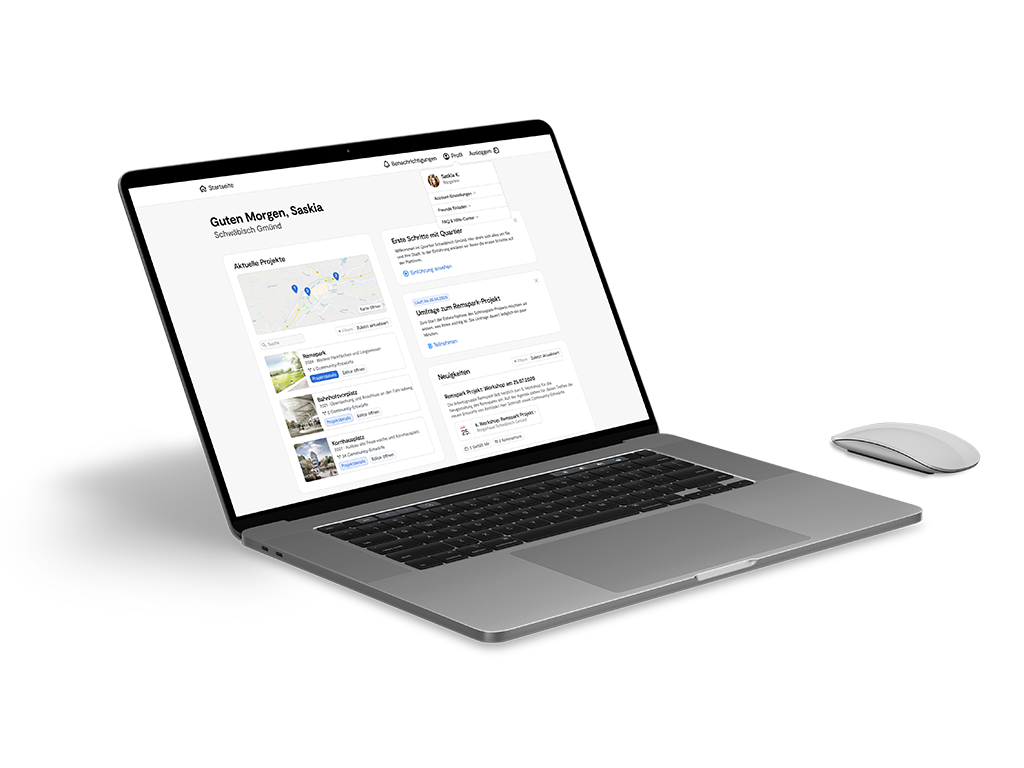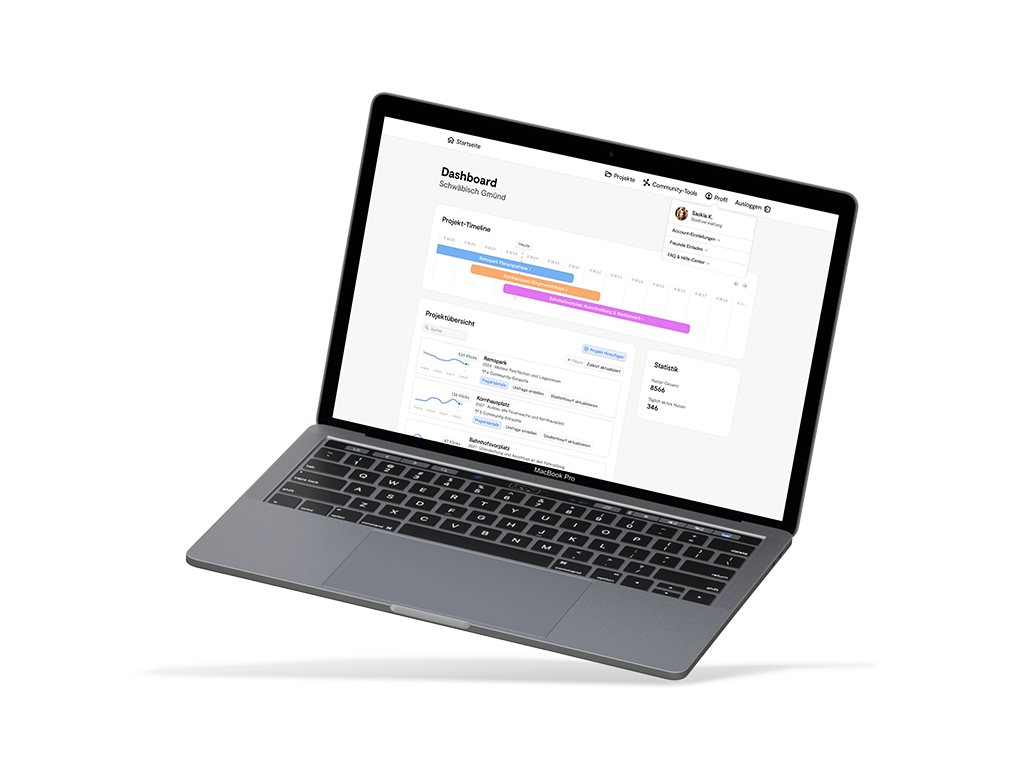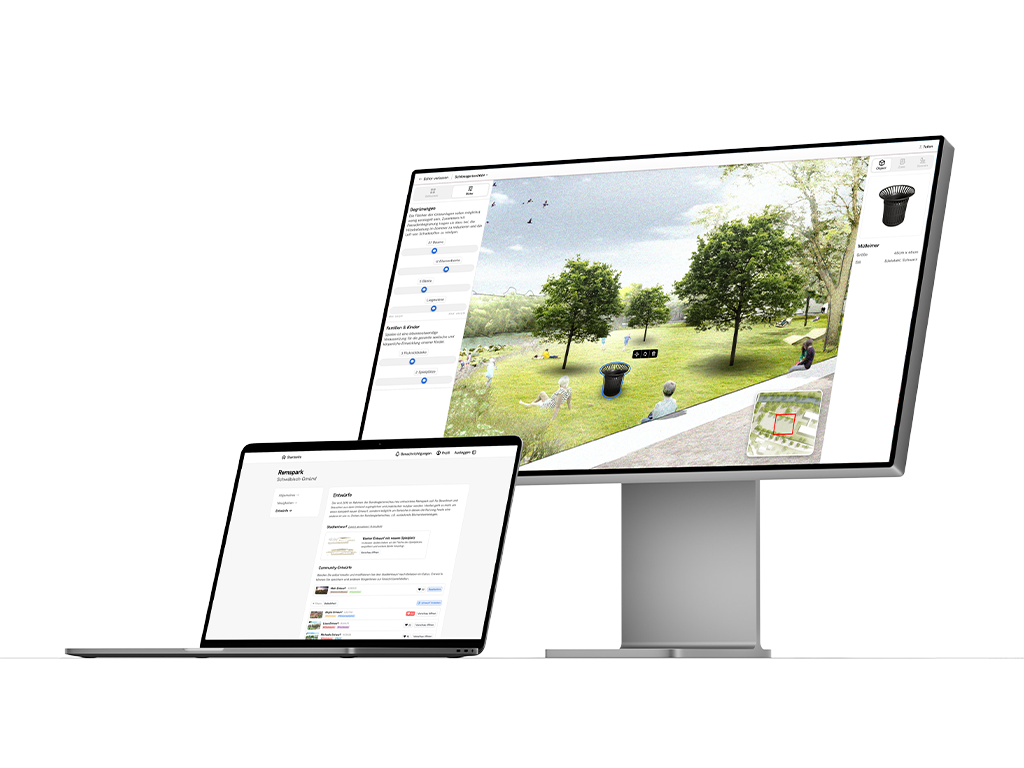Introduction
The last 25 years are characterized by the megatrend of digitization. It has spread to the most diverse areas and is constantly developing further. Many new potentials are emerging in areas of process optimization and seamless networking. Processes are becoming more agile and the accumulation and exchange of information is increasing in speed.
E-Democracy
In many areas of society the potential of digital development is not yet fully used. This affects, among other things, administrative procedures at federal and state level as well as at the local level. Looking at other European countries, the possibilities of e-democracy are already being used. A look at the market for E-Democracy products in Germany shows that there are very few offers. This creates an area which offers great potential to embrace new possibilities and to ensure a positive and sustainable change.
Quartier
A strong urban community is a key factor for a healthy and sustainable urban design of the future. Quartier has set itself the task of harnessing the potential of eParticipation for urban development. The products intervene at an early stage in the planning processes of cities and enable a collaborative planning process between citizens and the municipal administrative apparatus.
With our concept, we are striving for an urban future and the city as a holistic living space. We use the following principles to get closer to this vision:
- Stakeholders of a construction project must be given a platform for collaborative communication on an equal footing.
- Information on urban development must be fully shared with citizens.
- To create affinity, citizens must be able to identify with their city.
- Cities must provide a deep and precise insight into urban processes.
- Digital potentials must be used to meet the needs of the future.
- Current location-based participatory offerings must be supported by means of a decentralised approach.
Quartier Pro - Informing and creating transparency
Quartier Pro is the entry-level product in the form of a web application for citizens and a desktop application for city planners. Urban construction projects are made visible to citizens and the basis for participatory processes is laid.
The application focuses on information transfer and stimulates communication between citizens and city planners. The idea and goal is to open the black box of a city's planning activities and make all activities publicly accessible. This structural change in the information policy of cities has a lasting participatory effect and forms the basis for all subsequent participatory actions.
In concrete terms, this platform is applied within the framework of existing participatory workshops or information events such as citizens' meetings or local council meetings. The digital nature of the application extends the classic methods of citizen information into the digital space and opens up potential for, for example, particularly busy or restricted citizen groups. It should be noted that the platform is not intended to replace the existing, personal discourse on site, but rather to support it.
Quartier Pro Modulate - Dare to experiment with your own design
Quartier Pro Modulate expands the existing solution with functions with which the citizens themselves are active and the platform becomes the centre of participatory workshops: With the help of an editor, citizens can modify the existing designs of architects and urban planners. Citizens can immerse themselves in the design and change and design the layout and objects. In the process, the user is provided with objects that have already been used and approved by architects. The goal is to make the design experienceable and understandable through interactivity.
One of the most important approaches that we pursue in this product extension is that of conditional design. The nature of urban planning work can be elaborate and complex, and can stand in the way of dialogue between citizens and experts.
When modifying a design, the user should get to know and understand the architect's conditions and compromises. A minimum number of trees or a minimum area of unsealed soil space will give the user an understanding of the conditions of the project. In addition, designs can be created easily and without prior knowledge of CAD. The user has two options:
-
Parametric design - Using various controls, citizens can quickly and easily adjust the number of individual objects. Our intelligent software automatically places objects in the most sensible locations.
-
Placing design - Through the integration of an object library, users can place objects individually.
Both functions are proving to be an opportunity for the exchange of architects and citizens to better understand each other's perspectives. The designs can be developed in a moderated workshop or on their own. Our system opens up to a place of joint design and paves the playing field for creative ideas. Functions for rating and favouring designs give the platform a social component and facilitate the quantitative evaluation of the designs.
Quartier Lab - The mobile space as a real laboratory
The Quartier Lab brings participation into the real world. With our software application as a basis, we create a mobile space in which both the location and the architectural design proposal can be experienced. A fully glazed container invites passers-by and citizens to participate in the design of the space.
While the target group for all three products is the same, the Quartier Lab's customer base changes: the stationary solution requires an extended project scope and is more cost-intensive than the fully digital solutions. The advantages of mobile space are numerous:
Dealing with the location - By positioning the container in or on the construction site, the user can personally experience the environment and location in an urban context.
Accessibility - A solution on site requires neither smartphone nor computer. Users can participate unconditionally in the process without standard technical equipment. This makes the mobile space a meeting place for people with diverse backgrounds.
Visible and prominent participation - Mobile spaces attract attention and sow curiosity for residents as well as tourists or visitors. By means of this solution, participatory processes achieve a particularly high-profile format.
Quartier workshops - Training and support
In workshops, we train city planners in the use of our products and provide information on e-democracy and e-participation. The focus here is on error-free handling of our products. By participating in the workshop, we certify the participants as "Quartier Professionals" so they can act as brand ambassadors.
Outlook
Our products give cities the opportunity to put participation in the hands of citizens in order to work together on the future. Quartier integrates seamlessly into the needs and processes of individual cities. We want to support existing mechanisms and make the workflow digital and future-oriented. Quartier paves the way for citizen-centred and collaborative urban planning.
Combining the three products results in a product portfolio that provides suitable solutions for cities of different sizes and with different budgets. While large cities and metropolitan areas can set a strong signal for participatory processes with mobile space, the software solutions Quartier Pro and Pro Modulate offer significant added value for the dialogue between citizens and their communities and cities.
Our product portfolio makes living spaces of the future designable together!

